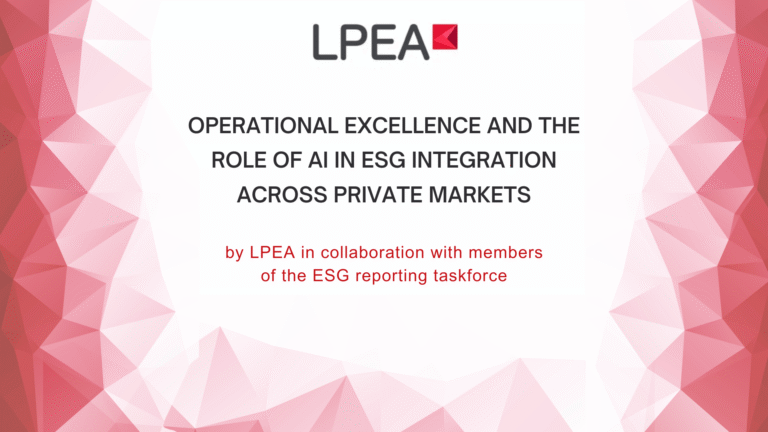Interview of Michel Rzonzef, President of the Luxembourg Business Angel Network
By Luis Galveias, COO of LPEA
Can you describe LBAN in a few words?
LBAN is the business angel network in Luxembourg with the aim to connect startups with investors. Today we have more than 130 members who have invested over EUR 40 million in recent years, and EUR 8.5 million alone in 2022. We focus investment in early-stage startups with a valuation between one and ten million, where our members usually take an active role in supporting the growth of the business.
Who are your members? What is their typical profile?
Members can either be successful entrepreneurs who are themselves founders of startups or corporate profiles, professionals coming from a successful corporate life with skills that can be useful for founders. They invest tickets in between EUR 25.000 and 100.000, sometimes more per project. As a group we often syndicate and invest between EUR 150.000 and 350.000 per startup.
You have been recently elected President of LBAN, what are the objectives you set out for your mandate?
My priorities for this one-year mandate are threefold: investments, community and ecosystem.
On the investment, we will continue to strengthen the deal flow for our members in terms of quality and quantity; we want to provide tools to facilitate the due diligence and the investment process, and that includes creating a co-investment structure – an SPV, which allows our members to co-invest in bigger projects or smaller investments by our members.
Community-wise, we will continue to strengthen the services we offer to our members, like the academy that helps learning about investment in early stage companies. We also intend to partner with association like the LPEA which can be a source of investors – I will come back on that.
Regarding the ecosystem, we are a key player in the startup environment, we will keep working with the incubators and accelerators to help the founders know how to get spotted and funded by business angels. We will also continue to partner with business angels across Europe – so we can join forces in investments or follow on deals. No less important, we will work more with VCs – that is why the collaboration with LPEA is important, because once the business angels have done their job, come the VCs that can then be the next step for startups.
How can we motivate more people to become business angels?
By talking about it, by promoting the ecosystem, by showing the importance of the early stage startups for the economy of a country – and I think the investment done by the State of Luxembourg on this ecosystem show how important it is. We believe there are candidates for instance in associations like the LPEA and the Independent Directors Association (ILA).
We also need to get closer to corporations. We are aware that business executives and partners have little time to dedicate to investment and that is why we are offering at LBAN tools to facilitate the investment process. We for instance access to a co-investment structure that is as useful for busy executives as it is for junior members of LBAN to invest smaller amounts, to invest in a group and to mitigate the risk. Not to say that all members have access to our Academy that provides training on how and where to invest.
Many countries have adopted tax incentives to promote early stage investment. It also helps to attract new business angels…
It is a fact that countries like the UK, Belgium, Germany, just to name a few, do have attractive incentives to bring investments into early stage ventures. France policy makers are working on a scheme to triple investors in the start-up ecosystem. Luxembourg cannot stay idle as it wants to attract investment in the startup ecosystem, and we expect the next governing coalition to include this important matter in its programme.
How can synergies between business angels and VCs be deepened?
Business angels are individuals that want to give to the ecosystem. They invest their time, their expertise, their knowledge and their money of course. The VCs have expertise in financing. So going together into a project at the seed stage or in follow on investments, is a natural win-win. Today we are already invested with VCs and we will continue working with the LPEA to strengthen relationship with VCs as well as Private Equity firms at some stages.
With the current democratisation trend characterising the VC/PE sectors, can we expect business angels to invest in VC and PE funds?
Each investor has its own investment strategy. We invest in early stage to support an ecosystem. In parallel to that, many of us also invest into other investment structures. It’s all part of the diversification process so I can indeed see our members investing in the fundraising of LPEA members.
Early stage has to be seen as a different class of assets, either via VCs or Business Angels, and we are there to help with our expertise for people that don’t necessarily have the experience in the sector to have the opportunity to invest into that asset class.




